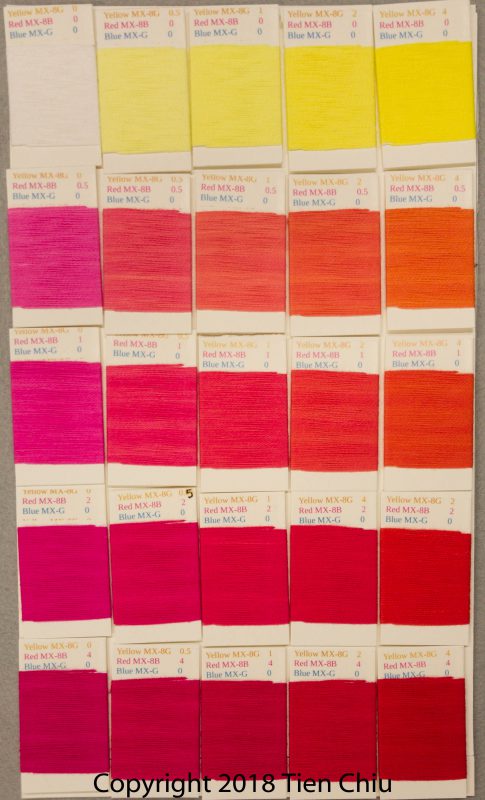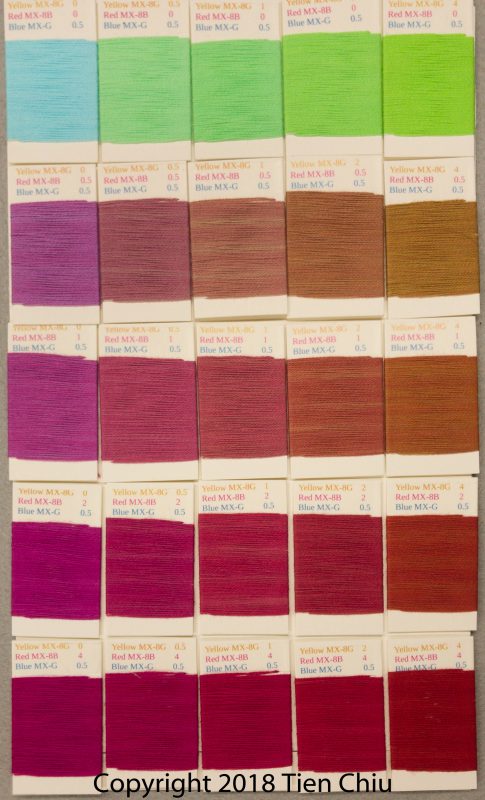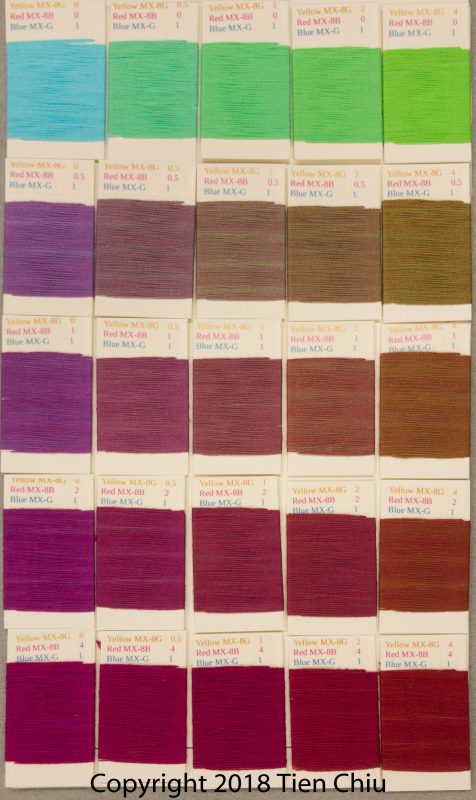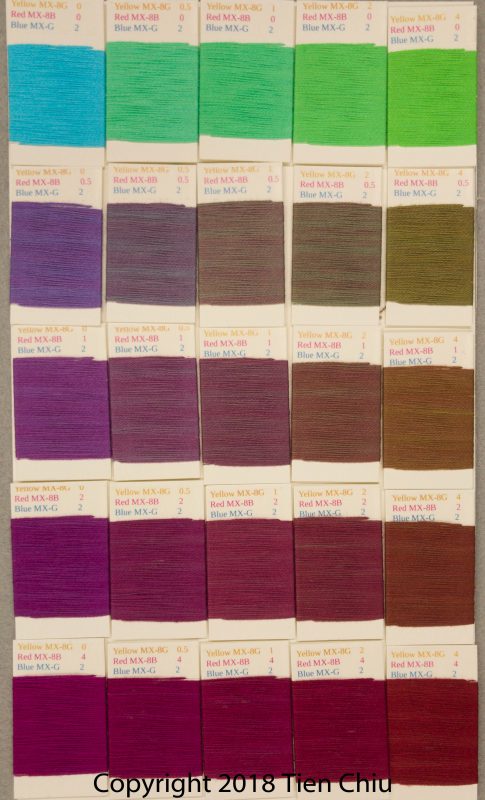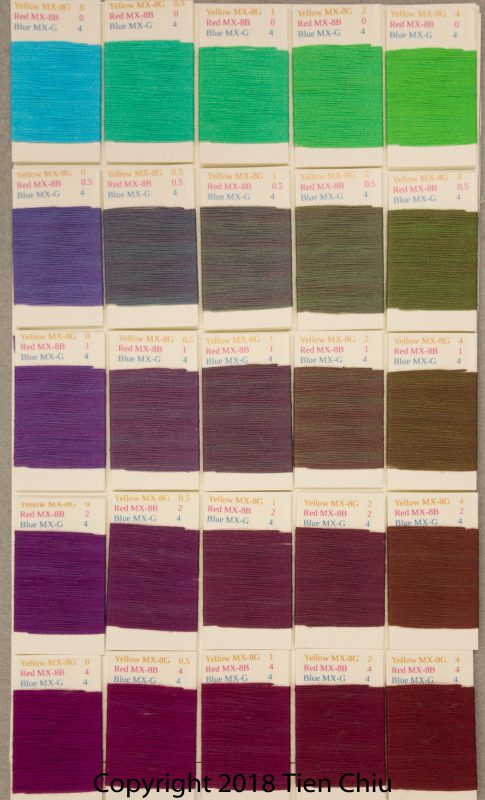Jump to the sample images
Overview
These samples are part of my Dye Sample Project, which features 1500 samples of Procion MX dyes on cotton.. The page Dye Sample Strategy explains how I chose what colors and concentrations of dye to use, and the page Procion MX on Cotton Dyeing Protocol explains exactly how I did the dyeing.
How to read the dye samples
My page How to Read the Dye Sample Sets explains how the samples are arranged. You can also click on any of the photos to get the full-size photos. At full size, you should be able to read the labels on each sample card, which will tell you what concentrations of dye were used.
The photos below show mixes of Procion MX fiber-reactive dye colors Sun Yellow, Fuchsia, and Turquoise in varying concentrations on cotton yarn. There are 250 colors in this sample set.
(Color names are those used by Pro Chemical and Dye; the corresponding colors for Dharma Trading Company are Lemon Yellow, Fuchsia, and Turquoise. For those not ordering from one of those companies, the Color Index names are Procion Yellow MX-8G, Procion Red MX-8B, and Procion Turquoise MX-G.)
Sorry, I don’t sell sample books
I don’t sell sample books because it’s expensive and nearly impossible to reproduce colors accurately in print format, and creating physical samples is even more labor-intensive. Also, the colors in my samples will be different from the colors you dye, because you are using different yarn, different water, and probably slightly different methods.
If you want a really good idea of what my samples look like, calibrate your monitor using calibration equipment. It will help you see the colors more accurately.
DYE YOUR OWN SAMPLES FIRST!
The sample photos below are intended to give you a general idea of what happens when you mix colors and concentrations of Procion MX fiber-reactive dye on cotton. You should absolutely NOT assume that the colors you see on your screen can be reproduced precisely for your project by using the dye concentrations listed. This is for five reasons:
- It is not possible to reproduce the color of a physical object precisely on a monitor. This is because colors of light (your monitor) mixes differently than colors of reflected light (physical objects).
- Photographing color accurately is a headache you don’t even want to imagine. I have literally spent hours on working out lighting, camera rigs, and color correction to get the colors as accurate as possible. They’re pretty close, but definitely not 100%.
- Unless you have calibrated your monitor with professional equipment, it is almost certainly distorting the colors on your screen. (And even if you have, there will still be differences. I have two monitors on my desk, both calibrated using equipment borrowed from a professional photographer whose work has been exhibited at the Smithsonian. The colors they show are similar but by no means identical.)
- The dyes can and will dye differently on your yarn. Fiber content, fiber lengths, treatments of the fiber or the yarn, the original color of the yarn, and a ton of other differences mean that no two yarns dye alike. I used 20/2 mercerized cotton yarn from Testfabrics. The colors will likely be similar, but there is absolutely no guarantee that your rayon, linen, unmercerized cotton, thicker yarn, thinner yarn, off-white yarn, etc. is going to produce the color of the sample, even if it appears correctly on your monitor.
- Your local water can affect the color of your finished yarn, especially if you have hard water or water with a lot of iron in it. My local water is soft without a whole lot of iron in it.
All that said – I have put together these samples and color-corrected the photographs to give you the best possible idea of what happens when you mix these colors of Procion MX fiber-reactive dyes on cotton. The colors you get in your own dyeing should (cross fingers) be quite similar, but ALWAYS DYE YOUR OWN SAMPLES before embarking on your full dye project.
Did I mention ALWAYS DYE YOUR OWN SAMPLES FIRST?
Sun Yellow, Fuchsia, and Turquoise – Light to Medium Colors
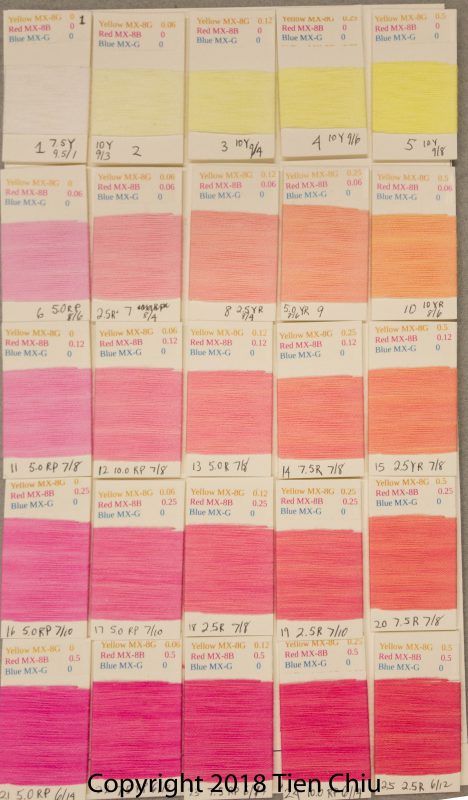
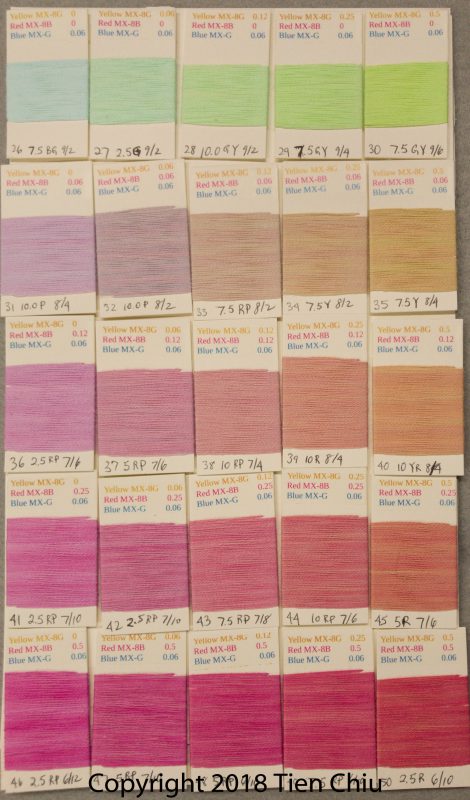
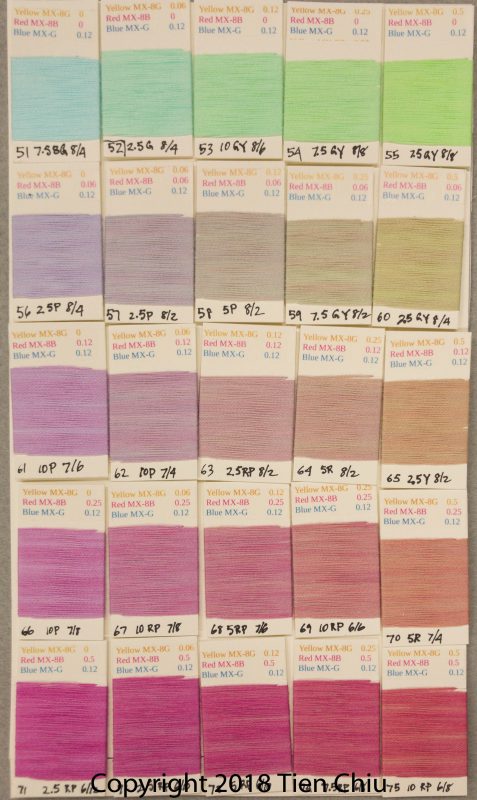
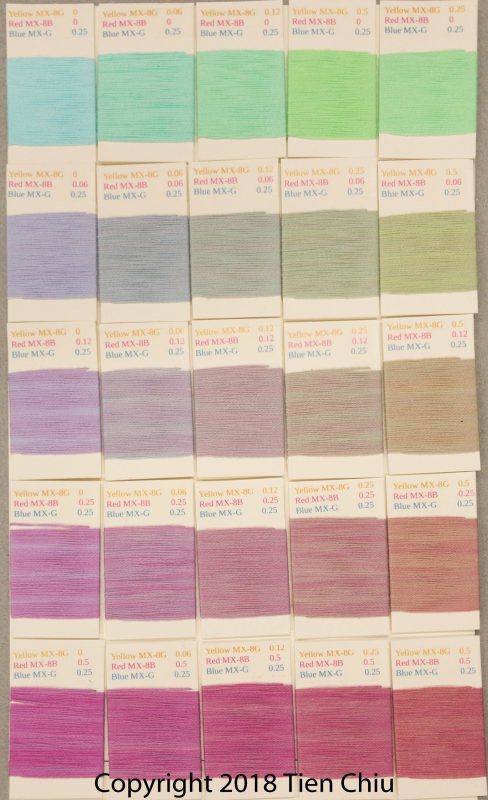
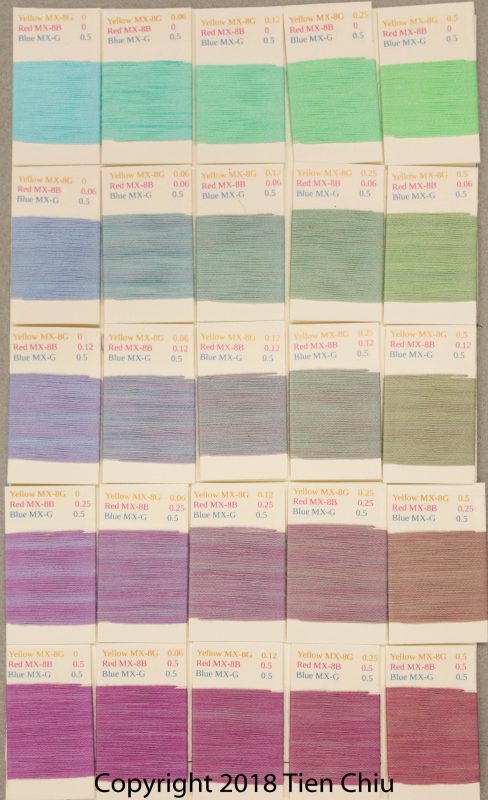
Sun Yellow, Fuchsia, and Turquoise – Medium to Dark Colors
